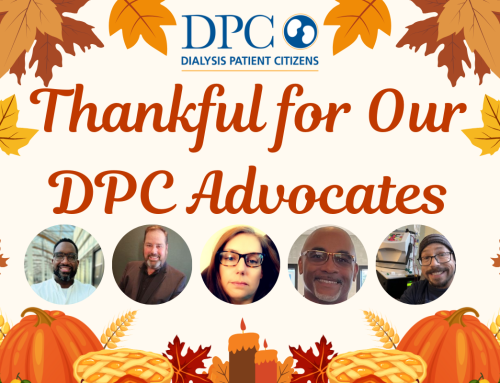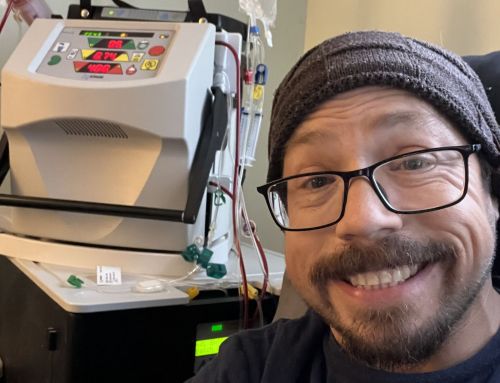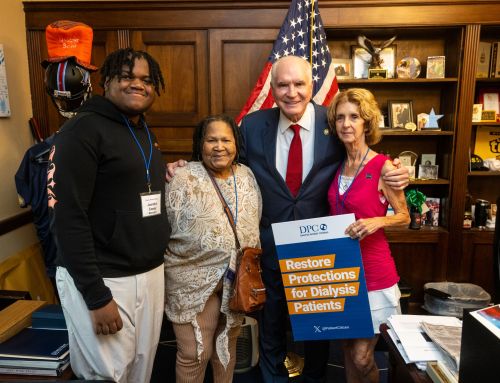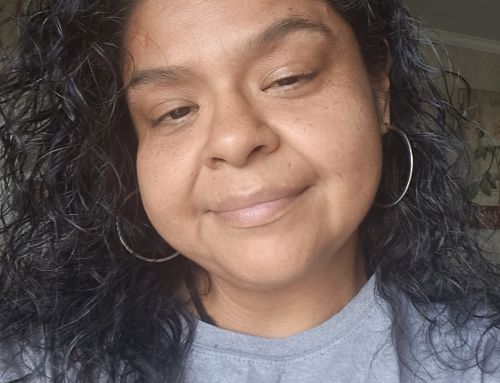To: James Canavan, Center for Medicare, Centers for Medicare & Medicaid Services
Spencer Manasse, Center for Consumer Information and Insurance Oversight, CMS
Vicki Gottlich, Administration for Community Living
Gene Coffey, Center for Medicaid and CHIP Services, CMS
Janet Miller, Office of Communications, CMS
Sharon Donovan, Medicare-Medicaid Coordination Office, CMS
Re: Comments on “Frequently Asked Questions Regarding Medicare and the Marketplace”
We appreciate that the Centers for Medicare & Medicaid Services (CMS) and the Administration for Community Living (ACL) arranged a July meeting for beneficiary advocates to discuss our questions and concerns related to beneficiary transitions from coverage options created under the Affordable Care Act (ACA) to Medicare. Additionally, we thank you for making available the recently released Frequently Asked Questions (FAQs) on Medicare and the Marketplace. Below we detail substantive comments and questions alongside the FAQs.
Regarding content, we find that the FAQs confirm many of the things we believed to be true based on prior FAQs, legal analysis, and our practical experiences. Among the most helpful clarifications are answers as follows:
- People with ESRD can retroactively disenroll from Medicare to access a Qualified Health Plan (QHP) as long as they repay all costs covered by Medicare and Social Security benefits received.
- People with Premium-Free Part A could also theoretically disenroll from Medicare as long as they repay all Medicare and Social Security benefits received. People who qualify for Premium-Free Part A, but who forgo Medicare, can purchase a QHP. They cannot, however, access the premium tax credit and cost-sharing subsidy.
- QHPs cannot disenroll people who subsequently become eligible for, or enrolled in, Medicare.
Having this content will be extremely helpful in our service to newly eligible Medicare beneficiaries. Yet, important questions remain unanswered by the FAQs. In particular, the most significant omission is how, and whether, individual QHPs will coordinate their benefits with Medicare, or pay secondary benefits, for people who are eligible for or enrolled in Medicare Part A, Part B or both while also covered by a QHP. While “Section D” of the FAQ addresses the fact that Medicare will pay primary for some individuals, the document is silent on what QHPs will pay when individuals are also eligible for or enrolled in Medicare.
As you work to release subsequent FAQs, we ask that the agencies give priority to providing clarification on how QHPs will coordinate with Medicare benefits. Our organizations, State Health Insurance Assistance Programs (SHIPs) and other beneficiary counselors would be best served if this information is released ahead of the upcoming Medicare and Marketplace open enrollment periods.
Additionally, we request that you revise the released FAQs to ensure that the consequences associated with delaying Part D enrollment for those without creditable coverage (i.e., late enrollment penalties and potential gaps in coverage) are expressly included throughout the document, and specifically where mention of delayed Part B enrollment is referenced. In general, we find it serves an important educational purpose to address the consequences of delayed Medicare enrollment, both for Part B and Part D, comprehensively—not separately.
Similarly, where coordination of benefits rules are referenced regarding employer-sponsored group health coverage, we ask that you reference both the rules for those aging into Medicare and for those eligible due to a disability. Critically, coordination of benefits rules differ for these groups based on employer size, a point which should be made often and clearly. At the same time, we ask that explicit language is incorporated which references that access to a Special Enrollment Period (SEP) does not necessarily mean that a person ought to delay Medicare enrollment, particularly for those whose employer-sponsored coverage will pay secondary to Medicare. We also ask that you provide specific information about enrollment, coordination of benefits and coverage rules for individuals who may qualify for Medicare due to End Stage Renal Disease (ESRD).
With respect to formatting and language, we understand that these FAQs were not written with a beneficiary audience in mind, and we took this into consideration as we compiled feedback. Still, we believe it would be beneficial to streamline the FAQs where possible. We expect that limiting overlap between the questions will also limit confusion. Similarly, we believe it would be helpful to include a basic glossary of commonly-used terms as well as additional visuals, like the chart associated with question A.8. Finally, we ask the agencies to develop consumer-friendly resources that explain the content of these FAQs and future content released on Medicare and the Marketplace.
Importantly, we urge CMS and CCIIO to couple the release of these FAQs and any future guidance with education for the 800-MEDICARE call center, SHIPs, the Healthcare.gov call center, navigators and other federal and state entities tasked with advising Medicare, Medicaid or Marketplace enrollees. Issuers participating in the Marketplace and consumer representatives working on Marketplace plan hotlines are also a critically important audience, and should be trained on the FAQ content. We have recently become aware that some individuals are receiving guidance from federal resources that directly conflicts with the information supplied in the FAQs, such as on the ability to keep a Marketplace plan once a person becomes eligible for Medicare as well as the rules concerning whether people with ESRD who have not yet applied for Medicare can retain premium tax credits. For instance, one of our clients was told that the FAQs were incorrect and would shortly be removed from the CMS website when she pointed out an inconsistency.
While we appreciate that the FAQs provide clearer answers on policy questions that we were relatively certain about, it is important to note that these FAQs are not a substitute for regulatory action. We continue to suggest that CMS and CCIIO address the interaction of Medicare and Marketplace plans through formal guidance. Specifically, we ask that formal clarification on the coordination of Medicare and QHP benefits, including for individual eligible for Medicare due to ESRD, be provided to the National Association of Insurance Commissioners (NAIC) to help them in their work to advise and assist state insurance departments.
We also ask that CMS and CCIIO release formal guidance on the treatment of Medicare-eligible individuals by QHPs, namely to clarify that QHPs are prohibited from discriminatory plan designs that limit plan coverage of benefits or payment for persons eligible for, but not enrolled in Medicare. This issue is particularly acute for individuals with ESRD, since some QHP issuers currently participating in the Marketplace have policies that reduce or restrict coverage for newly eligible Medicare beneficiaries, essentially forcing Medicare-eligible individuals with ESRD to enroll in Medicare.
In addition, we urge that CMS and CCIIO work with the Social Security Administration (SSA) to develop a formal policy to provide advance notice—both in writing and electronically—to those nearing Medicare eligibility. We suggest both a notice directly from SSA and a requirement that Marketplace plans deliver a uniform notice developed by CMS. Many of the difficulties that we anticipate may arise for newly eligible Medicare beneficiaries navigating the transition from a Marketplace plan, expansion Medicaid or other coverage can be avoided if appropriate notice is provided.
At the same time, we continue to believe that CMS should provide direction to state Medicaid offices about how to manage transitions for individuals eligible for expansion Medicaid who are moving to Medicare. Specficially, we suggest a letter to State Medicaid Directors reinforcing the available flexibility on Medicaid and Medicare Savings Programs (MSPs) eligibility thresholds and opportunities to streamline data sharing and enrollment systems. Importantly, CMS should stress that states are required to screen transitioning individuals for all Medicaid programs, including MSPs.
In closing, we would greatly appreciate an opportunity to meet with you to discuss our questions on the recently- released FAQs, and we look forward to reviewing forthcoming, additional FAQs. Many thanks for your careful attention to these important issues.
Sincerely,
ACCSES
American Association of Kidney Patients
California Health Advocates
Center for Medicare Advocacy, Inc.
Christopher & Dana Reeve Foundation
Dialysis Patient Citizens
Medicare Rights Center
National Committee to Preserve Social Security and Medicare
National Council on Aging National Health Law Program
National Kidney Foundation
National Multiple Sclerosis Society
National Senior Citizens Law Center
State Health Insurance Assistance Programs (SHIP) Steering Committee (Kris Goss, Committee Chair)
Texas Transplantation Society
Transplant Recipients International Organization
United Spinal Association
Frequently Asked Questions Regarding Medicare and the Marketplace
Released: August 1, 2014 (Updated: August 28, 2014)
A. General Enrollment FAQs
A.1. Can individuals who have Medicare enroll in individual market coverage, such as coverage offered through the Individual Marketplace? No. Consistent with the longstanding prohibitions on the sale and issuance of duplicate coverage to Medicare beneficiaries (section 1882(d) of the Social Security Act), it is illegal to knowingly sell or issue an Individual Marketplace Qualified Health Plan (or an individual market policy outside the Marketplace) to a Medicare beneficiary. This prohibition does not apply in the SHOP market, or to employer coverage outside of the SHOP market.
A.2. Can Medicare beneficiaries whose employer purchases insurance coverage through the SHOP be enrolled in a SHOP Qualified Health Plan? Yes, Medicare beneficiaries whose employers purchase SHOP coverage are treate the same as any other person with employer Group Health Plan coverage. The statute (Section 1882(d) of the Social Security Act) prohibits the sale or issuance of duplicate coverage to an individual with Medicare, but employer-sponsored coverage is explicitly exempted from this prohibition. SHOP coverage is sold to the employer. Note that for Medicare beneficiaries who are active employees and are enrolled in SHOP coverage, the Medicare Secondary Payer rules, which govern the coordination of benefits between Medicare and the employer coverage, apply to employers with 20 or more employees.
- COMMENT: As above, we suggest that whenever the FAQs reference the Medicare Secondary Payer rules, that is included which makes explicit their implications for active employees (aged 65+) of companies with fewer than 20 employees, and for those eligible for Medicare due to disability for companies with fewer than 100 employees. Medicare is primary for these individuals, and they should be warned that failure to enroll in Medicare could result in having little or no coverage and penalties if they enroll outside of their Initial Enrollment Period. Additionally, as noted above, there is no reference to Part D creditable coverage rules in this response. We suggest adding information here about creditable coverage and the potential implications associated with delaying Part D when an individual’s SHOP coverage is not creditable to Part D benefits.
A.3. Does the prohibition against the sale or issuance of duplicate coverage to an individual with Medicare apply to selling or issuing coverage to someone eligible for Medicare but not yet signed up? No. The prohibition, set forth in Section 1882(d) of the Social Security Act, applies to selling or issuing coverage to someone who is entitled to Medicare Part A or Part B.
- COMMENT: We appreciate that CMS recently updated and clarified the answer to question A.3. Yet, in general, we find that the phrase “entitled to” is a legal term of art, and may be confusing even to the most knowledgeable professionals. As such, we strongly suggest defining the phrase “entitled,” in the answer to A.3. Additionally, we encourage CMS to differentiate between Social Security Retirement (SSR) and Social Security Disability (SSD) benefits here. Collecting SSD benefits does not necessitate entitlement/enrollment, given that some SSD beneficiaries may be in the two-year waiting period for Medicare. Clarifying language about End Stage Renal Disease (ESRD) Medicare is also needed in this response.In particular, we suggest that CMS re-phrase the answer to A.3 as follows: It depends. The prohibition, set forth in Section 1882(d) of the Social Security Act, applies to selling or issuing coverage to someone who is entitled to Medicare Part A or enrolled in Part B. As defined by Medicare law, the term “entitled to Medicare Part A” means a person who is already enrolled in Medicare Part A. Note that if an individual is collecting Social Security Retirement benefits, they are entitled to (and actually enrolled in) Medicare Part A, even if they have not separately signed up for Medicare. An application for Social Security serves as an application for Medicare as well. For people under 65 with ESRD, an individual is entitled to Medicare only when they are actually enrolled. Therefore, the prohibition against the sale or issuance of duplicate coverage does not apply to an individual with ESRD if they may qualify for, but have not enrolled in Medicare.
A.4. Do beneficiaries with Part B only meet the Affordable Care Act’s requirement to maintain Minimum Essential Coverage? Medicare Part B alone does not constitute Minimum Essential Coverage.
A.5. Does it make any difference to the Affordable Care Act’s requirement to maintain Minimum Essential Coverage if an individual with Part B only is required to pay the Income Related Monthly Adjustment Amount for Part B? No, the same principles apply.
A.6. The Individual Marketplace Qualified Health Plans (QHPs) may be cheaper than Medicare for individuals who have to pay a premium for Part A. Can someone with Premium Part A drop Medicare and enroll in the Individual Marketplace? Yes. Individuals who are not eligible to get Medicare Part A for free may drop both their Premium Part A and their Part B coverage (or choose not to enroll when first eligible).
An individual who does not have Medicare (either Part A or Part B) can enroll in a QHP. Note that individuals who get free Pa rt A cannot drop it without dropping their retiree benefits (social security or railroad retirement) and paying back all retirement benefits received and costs incurred by the Medicare program as well.
Before making this choice, there are 2 important points for individuals to consider:
- Individuals who do not enroll in Medicare when first eligible (during their initial enrollment period) may have to pay late enrollment penalties if they later apply for both Premium Part A and Part B.
- In addition, individuals who enroll in Medicare after their initial enrollment period ends can enroll in Medicare only during the Medicare general enrollment period (from January 1 to March 31) and coverage does not begin until July of that year.
- COMMENT: We suggest including language here on the implications of delaying Part D coverage when a QHP’s prescription benefits are not creditable to Part D.
A.7. Can a Medicare beneficiary purchase a stand-alone dental plan through the Individual Marketplace? Even though Medicare does not provide dental coverage, and therefore a stand-alone dental plan would not duplicate Medicare benefits, the Federally-facilitated Marketplaces (FFMs) require that individuals buy a comprehensive medical Qualified Health Plan (QHP) before they can purchase a separate dental plan. Because it is illegal to sell or issue a comprehensive medical QHP to a Medicare beneficiary, Medicare beneficiaries cannot currently buy a stand-alone dental plan through the FFMs. Nothing in federal law prohibits issuers from generally selling or issuing stand-alone dental plans through State Based Marketplaces that can support this functionality, or outside the Marketplaces, to Medicare beneficiaries.
A.8. If you have coverage in an Individual Marketplace Qualified Health Plan (QHP) and later enroll in Medicare, can you keep your Marketplace coverage? Yes. The prohibition on selling or issuing duplicative coverage set forth in Section 1882(d) of the Social Security Act applies to the sale or issuance of a (QHP) or other individual market coverage to a Medicare Beneficiary. It does not require an individual who was not a Medicare beneficiary when the QHP was purchased to drop coverage when he or she becomes a Medicare beneficiary. Once Medicare Part A coverage begins, however, any premium tax credits and reduced cost-sharing the individual receives through the Marketplace will be discontinued.
- COMMENT: To allow individuals to understand the full ramifications of keeping a QHP once Medicare coverage begins, the answer and chart below should also reflect information about how the QHP works in relation to Medicare so that people can judge whether it makes financial sense to keep their QHP in addition to Medicare. These initial FAQs indicate that Medicare will pay primary to the QHP.In future releases, we ask CMS to clarify: (1) whether or not the QHP will pay as primary for Part A services if the person enrolls only in Part B; (2) whether or not the QHP will pay as primary for Part B services if the person enrolls only in Part A; and (3) whether or not the QHP will pay as secondary if the person enrolls in both Parts A and B of Medicare. Should CMS determine that coordination of benefits will differ according to state law, we ask that CMS clearly explain all possibilities in different states and direct individuals to contact their State Department of Insurance or Financial Services as well as their state SHIP.Additionally, we suggest that CMS provide additional detail on the mechanism(s) by which access to premium tax credits and reduced cost-sharing will be eliminated. Specifically, CMS should indicate whether the beneficiary will receive notification and under what timeframe these subsidies will be discontinued. In particular, CMS should indicate if there is any risk that an individual who keeps a QHP either alongside of or in the absence Medicare will need to pay back any assistance they receive.
See the chart below for details.
Chart A: Maintaining Enrollment in an Individual Marketplace Qualified Health Plan (QHP)
| If you are: | Can you keep your Individual Marketplace QHP after enrolling in Medicare? | Are you eligible to continue receiving tax credits and reduced cost-sharing? |
|---|---|---|
| Currently enrolled in a QHP and become entitled to free Part A | Yes | No. Any tax credits the individual is receiving in the QHP will be discontinued once Part A coverage begins. |
| Currently enrolled in a QHP and become eligible to buy Premium Part A and Part B | Yes | Yes, if you only enroll in Part B, because Part B does not constitute Minimum Essential Coverage.
No, if you enroll in Premium Part A. |
- COMMENT: Again, we believe the distinction between entitled versus enrolled will be difficult to parse for most individuals. To mitigate potential confusion, we suggest that CMS re-phrase the highlighted wording as follows: Currently enrolled in a QHP and become entitled to (enrolled in) free Part A.Where CMS notes in the chart that an individual can keep a QHP alongside Medicare, we recommend adding a caveat that, for most, it probably does not make financial sense to keep a QHP alongside Medicare because of the financial concerns noted in A.8, most notably the loss of the premium tax credit and reduced cost sharing an individual might have received prior to Medicare enrollment. In addition, in the absence of clear information about how QHPs will coordinate with Medicare benefits, the chart is incomplete.As written, this chart only addresses considerations for those aging into Medicare or those receiving 25 months of SSD. In particular, we believe this chart is incomplete because it does not include specific information on ESRD-related eligibility, where the considerations are unique, and where the rules around premium tax credits are different. We suggest clarifying the first row to reflect that it applies to a person who becomes eligible for premium-free Part A due to age or receiving 25 months of SSD. An additional row should be inserted to address people who are or may be eligible for Medicare due to ESRD.
A.9. Will individuals enrolled in an Individual Marketplace Qualified Health Plan (QHP) be subject to the Part B or Premium Part A late enrollment penalty if they delay enrollment into Medicare? Yes. Individuals who do not enroll in Medicare during their Initial Enrollment Period (either for Part B or Premium Part A) will only be able to enroll in Medicare during the Medicare General Enrollment Period and may be subject to the late enrollment penalties.
- COMMENT: As noted above, we suggest including reference to creditable coverage and the Part D Late Enrollment Penalty (LEP). Additionally, we suggest adding information on the Medicare General Enrollment Period (GEP), like that included in the answers to questions A.6 and A.10.
A.10. Can Medicare beneficiaries with coverage under SHOP plans delay enrollment in Medicare Part B without penalty? Yes. A Medicare beneficiary who is enrolled in employer purchased SHOP coverage is treated the same as any other person with employer group health plan coverage.
Individuals can delay enrollment if they are covered under a group health plan based on their or their spouse’s current employment. These individuals have a special enrollment period to sign up for Part B without penalty:
- Any time they are still covered by the group health plan.
- During the 8-month period that begins the month after the employment ends or the coverage ends, whichever happens first
If the individual does not sign up during this special enrollment period, late enrollment penalties may apply, and enrollment will only be possible during the General Enrollment Period which occurs annually from January through March with coverage beginning July 1.
- COMMENT: While the statement clarifies that people with SHOP coverage qualify for an SEP, it does not warn certain individuals about the consequences of delaying Part B. Medicare pays primary for persons age 65 or older who have SHOP coverage from a company with fewer than 20 employees. Also, for most people with disabilities, Medicare will pay primary since Medicare pays primary for coverage from companies with fewer than 100 employees. In 2014, SHOPs can include companies with 50 or fewer employees, although companies with up to 100 employees can eventually purchase SHOP coverage. In essence, although these persons have an SEP, they also need to consider that failing to enroll in Medicare may leave them with little or no coverage. CMS should add the appropriate warning language on coordination of benefits to this response.In addition, CMS should reference that having SHOP coverage through a spouse also qualifies an individual for an SEP. We also suggest cross-referencing to information about the availability of SEPs for people aging into Medicare as well as for those becoming Medicare eligible due to a disability. Finally, we suggest adding information on creditable coverage and the Part D LEP.
A.11. Is prescription drug coverage in an Individual Marketplace or SHOP Qualified Health Plan (QHP) considered creditable prescription drug coverage for purposes of Medicare Part D? While prescription drug coverage is an essential health benefit, there is no requirement under the Affordable Care Act or its implementing regulations that prescription drug coverage in an Individual Marketplace or SHOP QHP be at least as good as Medicare Part D coverage, which is the general test for whether coverage is creditable. However, all private insurers offering prescription drug coverage, including Individual Marketplace and SHOP QHPs, are required to determine annually if their prescription drug coverage is creditable and notify CMS and their Medicare-eligible enrollees in writing of the determination. All private insurers offering prescription drug coverage are required to notify their Medicare-eligible enrollees of the plan’s creditable coverage status in writing annually prior to the start of the Medicare open enrollment period that begins on October 15, and in the following situations:
- Prior to an individual’s Initial Enrollment Period for Part D;
- Prior to the effective date of enrollment in the insurer’s prescription drug coverage;
- Upon any change that affects whether the coverage is creditable; and
- Upon request by the individual.
- COMMENT: Again, we request that CMS make information available to our organizations, SHIPs and other beneficiary counselors regarding which metal level plans, broadly speaking, do or do not seem to provide creditable coverage. Having this information will help consumer advocates and counselors ensure that those who have SHOPs plans, but lack creditable coverage, enroll in Part D when first eligible and avoid the Part D late enrollment penalty or a gap in coverage.
A.12. Is prescription drug coverage through the Marketplace considered creditable prescription drug coverage for the purposes of determining whether an individual must pay the late enrollment penalty upon enrollment in Medicare Part D? While prescription drug coverage is an essential health benefit, prescription drug coverage in a Marketplace or SHOP plan isn’t required to be expected to pay, on average, at least as much as Medicare’s standard prescription drug coverage (creditable). All private plans offering prescription drug coverage, including Marketplace and SHOP plans, must determine if their prescription drug coverage is creditable each year and let you know in writing.
A.13. If a person is enrolled in Part A and has chosen not to enroll in Part B, can that person purchase a QHP (or other individual market coverage) until their Part B is effective? For beneficiaries who would purchase their plan on the individual market, no. Consistent with the longstanding prohibitions on the sale and issuance of duplicate coverage to Medicare beneficiaries (section 1882(d) of the Social Security Act), it is illegal for an insurer to sell or issue to a Medicare benef iciary a QHP (or other individual market coverage) that the insurer knows would duplicate Medicare benefits. This is true even if the beneficiary has only Part A or only Part B. This prohibition does not apply in the small group market, including plans sold through the Small Business Health Options Program (SHOP).
Medicare beneficiaries whose employers purchase SHOP coverage are treated the same as any other person with employer- sponsored Group Health Plan (GHP) coverage. The statute (Section 1882(d) of the Social Security Act) prohibits the sale or issuance of coverage that the insurer knows duplicates Medicare benefits to an individual with Medicare, but employer- sponsored (GHP) coverage is explicitly exempted from this prohibition. SHOP coverage is sold to the employer. Note that for Medicare beneficiaries who are active employees and are enrolled in SHOP coverage, the Medicare Secondary Payer rules govern the coordination of benefits between Medicare and the employer coverage as appropriate.
A.14. If an individual is over age 65 and eligible for premium-free Part A, but is not collecting Social Security benefits and has not enrolled in either Part A or Part B, can that person purchase a QHP (or other individual market coverage)? Yes. If the individual is not collecting Social Security benefits, and is not covered by Medicare (that is, he or she does not have either Part A or Part B), then the anti-duplication statute in section 1882(d) of the Social Security Act would not prohibit the issuer of a QHP (or other individual market coverage) from issuing or selling coverage to the individual.
- COMMENT: We appreciate seeing, for the first time, a clear interpretation of the statute, which actively states that people can choose to delay all of Medicare and Social Security and put off the prohibition on the sale of duplicative coverage. Additionally, we appreciate CMS’ recent update to this language, removing references to “entitlement.” See our general comment to question A.3 regarding use of the phrases “entitled to” and “entitlement.”This answer should, however, contain clear information about the ramifications of delaying Medicare enrollment beyond age 65, referencing late enrollment premium penalties, delayed enrollment periods and coordination of benefits rules, as appropriate. Taken out of context, this answer may lead an individual to believe that purchasing a QHP after age 65—because it is allowable—is also advisable. As such, we ask CMS to include language that makes the consequences of delayed enrollment explicit.Additionally, we have learned of multiple QHPs currently offered through the Marketplace that contain plan provisions excluding or limiting coverage and benefits available to QHP beneficiaries who have ESRD and could apply for Medicare coverage, but who have not done so. The QHP plan provisions at issue indicate that the QHP will eliminate or reduce benefits for medical services to the extent other coverage is available to the QHP beneficiary under Medicare, targeting reduced coverage for QHP beneficiaries who are or may be eligible for Medicare but who have not enrolled in it. We ask CMS to address this situation by instructing QHPs that they may not eliminate or reduce benefits for QHP beneficiaries if they are eligible for Medicare, but have not enrolled in the program.
A.15. Is purchasing a QHP (or other individual market plan), instead of enrolling in Medicare Part B, an option for individuals who fail to enroll in Part B in a timely manner and must pay a Part B premium penalty, especially in those situations where the higher premium resulting from the penalty may be more than the individual would pay for a QHP—with or without a tax credit? Generally, no. If an individual already has Medicare coverage (including Part A and/or Part B coverage), consistent with the longstanding prohibitions on the sale and issuance of duplicate coverage to Medicare beneficiaries (section 1882(d) of the Social Security Act), it is illegal for an insurer to knowingly sell or issue to a Medi care beneficiary an individual market plan that the insurer knows would duplicate Medicare benefits, regardless of the cost of the Part B premium amount. An individual who does not have Medicare (neither Part A nor Part B) and who is otherwise eligible can enroll in a QHP.
An individual who does not enroll in Medicare during his or her Medicare Initial Enrollment Period (either for Part B or Premium Part A) will only be able to enroll in Medicare during the Medicare General Enrollment Period, and may be subject to the late enrollment penalties if he or she chooses to enroll later.
- COMMENT: We believe the highlighted phrase is confusing, and we suggest removing it. In addition, as noted above, we suggest adding information on creditable coverage and the Part D LEP here.
A.16. A Qualified Health Plan (QHP) may be cheaper than Medicare for individuals who get Part A for free but have to pay a late enrollment penalty or Income-Related Monthly Adjustment Amount (IRMAA) for Part B. Can someone with free Part A drop Medicare and enroll in a QHP? Generally, no. Individuals generally can choose to stop Medicare coverage only if they’re paying a premium for Part A or have only Part B. Individuals with free Part A can’t drop Medicare without also dropping their retiree benefits (Social Security or Railroad retirement) and paying back all retirement or disability benefits they received and all costs spent for their care by the Medicare program.
Before making this choice, there are two important points for individuals to consider:
- Individuals who do not enroll in Medicare when first eligible (during their Medicare Initial Enrollment Period) may have to pay late enrollment penalties if they later apply for both Premium Part A and Part B.
- In addition, individuals who enroll after their Medicare Initial Enrollment Period ends can enroll in Medicare only during the Medicare General Enrollment Period (from January 1 to March 31) for coverage that begins on July 1 of that year.
- COMMENT: The question (A. 16) is similar to question A.6. While the substance of this answer comports with the explanation provided in A.6, the initial “yes” or “no” answers are inconsistent. We prefer the “generally, no” answer here because it addresses the practical (as opposed to purely legal) question of whether persons with premium-free Part A can disenroll from Medicare and enroll in a QHP. In other words, while persons are legally permitted to withdraw their premium-free Part A applications, it would very rarely be feasible for a person to pay back all medical benefits and drop his or her retirement benefits. In addition, information on creditable coverage and the Part D LEP should be added above as important points for individuals considering delayed enrollment.
B.ESRD
B.1. Are Individuals with ESRD required to sign up for Medicare? No. Individuals with ESRD are not required to sign up for Medicare; it is voluntary. In order to get Medicare coverage, the individual must meet the necessary eligibility requirement and apply. If you don’t apply, you do not get Medicare coverage.
- COMMENT: We suggest adding information here about Medicare coverage and transplants and the corresponding impact on future Medicare coverage for individuals eligible based on ESRD. In addition, we are aware that some ESRD individuals have been told that they must enroll in Medicare. Given this, we ask CMS to respond to the following question: Should QHPs or non-Medicare insurers be permitted to require a person to sign up for Medicare as a condition of continued coverage or to avoid payment for ESRD patients? We believe QHPs should not be permitted to do this. Individuals who select QHPs who do not have ESRD are not subject to similar requirements because of their health status. Our concern is that QHPs are steering individuals with ESRD away from the QHPs because of their health status on to government plans (Medicare) by providing misleading information that people who may be eligible for Medicare due to ESRD must enroll in Medicare. We ask CMS to instruct QHPs that they may not instruct QHP beneficiaries that they must enroll in Medicare.
B.2. Are individuals with ESRD who do not have Medicare coverage eligible to enroll in a Marketplace Qualified Health Plan (QHP)? Individuals with ESRD who do not have either Medicare Part A or Part B are eligible to enroll in individual market coverage because the Medicare anti-duplication statute does not apply; therefore, individual market guaranteed issue rights apply under the ACA.
In order to enroll in a QHP through the Marketplace, the individual must meet the eligibility requirements for enrollment (i.e., criteria related to citizenship, lawful presence, incarceration, and residency).
- COMMENT: This clarification is helpful, but a citation to the Affordable Care Act (ACA) guaranteed issue rights would strengthen this response. Additionally, information should be added about transplants. As mentioned in our comment to questions A.14 and B.1, we have learned of multiple QHPs currently offered through the Marketplace that contain plan provisions excluding or limiting coverage and benefits available to QHP beneficiaries who are eligible for Medicare coverage, but who do not have any part of Medicare, specifically for those who may be eligible for Medicare due to ESRD. We ask CMS to address this situation by instructing QHPs that they may not eliminate or reduce benefits for QHP beneficiaries if they are eligible for Medicare, but not entitled or enrolled in the program.
B.3. Are individuals with ESRD who do not have Medicare coverage eligible for the health care Premium Tax Credit? An individual may be eligible for the health care Premium Tax Credit if he or she is not eligible for minimum essential coverage, as outlined in the IRS Notice 2013-41 at the following web link: http://www.irs.gov/pub/irs-drop/n-13-41.pdf
However, individuals will lose their eligibility for the health care Premium Tax Credit when coverage in Medicare Part A begins.
- COMMENT: Rather than providing the included link, we believe it would be more helpful to excerpt this IRS notice stating that persons are not considered eligible for minimum essential coverage if they have not yet applied for Medicare based on ESRD. Please also clarify that the regulation requiring people to fulfill administrative requirements (see: 26 CFR § 1.36B-2 (c); excerpted below) applies only to those with bright-line eligibility, as in the examples included in the regulation, rather than those eligible for Medicare as a result of a determination of disability or condition like ESRD.Please also clarify that the subsequent IRS notice, referenced in question B.3, reflects that a person who chooses not to enroll in Medicare despite having ESRD (as is permitted according to question B.1), is still entitled to premium tax credits because they are not eligible for minimum essential coverage, because the responsible agency has not issued a favorable decision.
2) Government-sponsored minimum essential coverage—
(i) In general. An individual is eligible for government-sponsored minimum essential coverage if the individual meets the criteria for coverage under a government-sponsored program described in section 5000A(f)(1)(A) as of the first day of the first full month the individual may receive benefits under the program, subject to the limitation in paragraph (c)(2)(ii) of this section. The Commissioner may define eligibility for specific government-sponsored programs further in additional published guidance, see §601.601(d)(2) of this chapter.(ii) Obligation to complete administrative requirements to obtain coverage. An individual who meets the criteria for eligibility for government-sponsored minimum essential coverage must complete the requirements necessary to receive benefits. An individual who fails by the last day of the third full calendar month following the event that establishes eligibility under paragraph (c)(2)(i) of this section to complete the requirements to obtain government-sponsored minimum essential coverage (other than a veteran’s health care program) is treated as eligible for government-sponsored minimum essential coverage as of the first day of the fourth calendar month following the event that establishes eligibility.
B.4. Can beneficiaries who currently have Medicare coverage due to ESRD opt out of or disenroll from Medicare? Generally, no. Following the application for Medicare, the law provides that Medicare coverage ends one year after the termination of regular dialysis or 36 months after a successful kidney transplant.
However, a beneficiary may withdraw their original Medicare application. The individual is required to repay all costs covered by Medicare, pay any outstanding balances, and refund any benefits received from the SSA or RRB. Once all repayments have been made, the withdrawal can be processed as though the individual was never enrolled in Medicare at all (i.e., retroactively).
- COMMENT: We appreciate this new information which provides helpful clarification.
B.5. Is there a mechanism for individuals to cancel ESRD Medicare enrollment if applications are initiated on their behalf without complete information about their options for QHPs? A dialysis facility or attending physician may not complete an application for Medicare entitlement on behalf of the beneficiary. While these providers may submit the medical evidence form for an individual applying for Medicare based on ESRD, the individual must also contact the Social Security Administration (SSA) to complete the Medicare application.
If an individual wants to enroll in a QHP after the medical evidence form is submitted by the provider, the individual can choose to not complete his or her application for Medicare. If the individual has Medicare currently based on ESRD, he or she may withdraw their original Medicare application. The individual is required to repay all costs covered by Medicare, pay any outstanding balances, and refund any benefits received from the SSA or RRB. Once all repayments have been made, the withdrawal can be processed as though the individual was never enrolled in Medicare at all (i.e., retroactively).
B.6. Please clarify whether individuals with ESRD who are currently enrolled in Medicare based on ESRD can disenroll from both Part A and Part B. If yes, please specify the requirements for doing so and the potential ramifications of this choice. Generally, individuals with ESRD who are currently enrolled in Medicare based on ESRD cannot disenroll prospectively. Following the application for Medicare, the law provides that Medicare coverage ends one year after the termination of regula r dialysis or 36 months after a successful kidney transplant.
However, a beneficiary may withdraw their original Medicare application. The individual is required to repay all costs covered by Medicare, pay any outstanding balances, and refund any benefits received from the SSA or RRB. Once all repayments have been made, the withdrawal can be processed as though the individual was never enrolled in Medicare at all (i.e., retroactively).
C. Consumer Messaging
C.1. What is the message to Medicare beneficiaries who have questions about how the Marketplace affects them? Medicare isn’t part of the Health Insurance Marketplace. If you have Medicare, you are covered, and do not need to do anything about the Marketplace. The Marketplace won’t affect your Medicare choices and benefits. No matter how you get Medicare, whether through Original Medicare or a Medicare Advantage Plan, you won’t have to make any changes.
C.2. What do Medicare beneficiaries need to know about Medicare and the Individual Marketplace? Individuals with Medicare need to know that if they have Medicare, an Individual Marketplace plan is not appropriate for them. If individuals want coverage designed to supplement Medicare, they can visit Medicare.gov to learn more about Medigap policies. They can also visit Medicare.gov to learn more about other Medicare options, like Medicare Advantage Plans.
- COMMENT: Information about Medigap is more readily available on State Department of Insurance or Financial Services websites than on the Medicare.gov website, and consumers should be directed to both sources. Importantly, we ask that this answer also include referrals for the Low-Income Subsidy of Medicare Part D/Extra Help (refer to SSA) and Medicare Savings Programs (refer to state Medicaid programs), which provide assistance with premiums and cost sharing for low-income beneficiaries. Additionally, we suggest including reference to SHIPs as a resource for beneficiaries.
C.3. I want to purchase health insurance through the Marketplace. What if I have Medicare? Medicare isn’t part of the Health Insurance Marketplace, so you don’t need to do anything. If you have Medicare, you’re considered covered. The Marketplace won’t affect your Medicare choices or benefits. No matter how you get Medicare, whether through Original Medicare or a Medicare Advantage Plan (like an HMO or PPO), you won’t have to make any changes. Note: The Marketplace doesn’t offer Medicare supplement (Medigap) insurance or Part D drug plans.
C.4. Can I get a Marketplace plan if I already have Medicare? No. It’s against the law for someone who knows that you have Medicare to sell or issue you a Marketplace policy. This is true even if you have only Medicare Part A or only Part B. If you want coverage designed to supplement Medicare, you can find out more about Medigap policies. You can also learn about other Medicare options, like Medicare Advantage Plans. For prescription drug coverage, you can buy a Medicare Part D drug plan.
- COMMENT: Reference to Extra Help and the MSPs should also be made here, as we expect that some beneficiaries may inadvertently seek out a Marketplace plan for help affording premiums and cost sharing. We also suggest including a reference to SHIPs as a beneficiary resource here.
C.5. Can I choose Marketplace coverage instead of Medicare? Generally, no. It’s against the law for someone who knows you have Medicare to sell you a Marketplace plan. But there are a few situations where you can choose a Marketplace private health plan instead of Medicare:
- If you’re paying a premium for Part A. In this case you can drop your Part A and Part B coverage and get a Marketplace plan instead.
- If you’re eligible for Medicare but haven’t enrolled in it. This could be because:
- You’d have to pay a premium
- You have a medical condition that qualifies you for Medicare, like end-stage renal disease (ESRD), but haven’t applied for Medicare coverage
- You’re not collecting Social Security retirement or disability benefits before you’re eligible for Medicare
- COMMENT: For the first bullet that reads, “You’d have to pay a premium,” please specify that this concern relates to premium-Part A. General references to premiums in this context may be misconstrued to include Part B.
Before choosing a Marketplace plan over Medicare, there are 2 important points to consider:
- If you enroll in Medicare after your initial enrollment period ends, you may have to pay a late enrollment penalty for as long as you have Medicare.
- Generally you can enroll in Medicare only during the Medicare general enrollment period (from January 1 to March 31 each year). Your coverage won’t start until July. This may cause a gap in your coverage.
C.6. If I’m getting Medicare Part A for free, can I drop Medicare to enroll in a Marketplace plan? Generally, no. You can choose to have your Medicare stop only if you’re paying a premium for Part A or have only Part B. If you get Part A for free, you can’t drop Medicare without also dropping your retiree or disability benefits (Social Security or railroad retirement) and paying back all retirement or disability benefits you’ve received and all costs spent for your care by the Medicare program.
Before making this choice, there are 2 important points to consider:
- If you enroll in Medicare after your initial enrollment period ends, you may have to pay a late enrollment penalty for as long as you have Medicare.
- Generally you can enroll in Medicare only during the Medicare general enrollment period (from January 1 to March 31 each year). Your coverage won’t start until July. This may cause a gap in your coverage.
C.7. I have coverage through an Individual Marketplace Qualified Health Plan (QHP) and then I enroll in Medicare. Once my coverage in Medicare starts, can the QHP disenroll me without my consent? No, issuers may not terminate enrollees whom they subsequently find to be eligible for or enrolled in Medicare, unless the enrollee requests the termination.
- COMMENT: As noted in the answer to question C.10, we suggest including a reference here to the fact that although coverage cannot be terminated, premium tax credits and cost sharing subsidies can be terminated. Importantly, we continue to believe that formal guidance, such as through the annual letter to issuers, would be helpful here. We ask that CMS and CCIIO seek a formal opportunity to provide notice to beneficiaries nearing Medicare eligibility enrolled in a QHP. Ideally, this notice would come from directly from SSA, regardless of a person’s coverage prior to becoming Medicare eligible. In addition, QHPs could be required to provide this notice; though, importantly, we would expect any notice from QHPs be developed and standardized by CMS. Preferably, beneficiaries would receive notice on multiple occasions, both in writing and electronically, about nearing Medicare eligibility.
C.8. Can an individual market health insurance issuer disenroll someone if it learns that individual is a Medicare beneficiary prior to the individual’s coverage effective date? Consistent with the longstanding prohibitions on the sale and issuance of duplicate coverage to Medicare beneficiaries (section 1882(d) of the Social Security Act), it is illegal to knowingly sell or issue an Individual Marketplace Qualified Health Plan (or an individual market policy outside the Marketplace) to a Medicare beneficiary.
The issuer should cancel an enrollment prior to the policy being issued if the issuer learns that the enrollment is for someone who has Medicare coverage. That is, the start date for the individual’s Part A and/or Part B was before the effective date of the individual market coverage. However, if the applicant’s Medicare coverage has not started yet, then the issuer issue the coverage on a guaranteed available basis.
Issuers may not, however, terminate the individual market coverage of enrollees who they find to be eligible for or enrolled in Medicare after the coverage has been issued, even if the individual was eligible for or enrolled in Medicare before enrollment into the individual market coverage, unless the enrollee requests the termination or another legal basis for termination appl ies.
C.9. What if I have only Medicare Part B? If you have only Medicare Part B, you are not considered to have minimum essential coverage. This means you may have to pay the penalty that people who don’t have coverage may have to pay. If you have Medicare Part A only, you are considered covered. If you have both Medicare Part A and Part B, you are also considered covered.
- COMMENT: For greater clarity, we suggest that the last sentence in this response be re-phrased as follows: If you have Medicare Part A only, you are considered to have minimum essential coverage. If you have both Medicare Part A and Part B, you are also considered to have minimum essential coverage.
C.10 What if I have a Marketplace plan but will be eligible for Medicare soon? If you have a Marketplace plan, you can keep it until your Medicare coverage starts. Then you can cancel it without penalty. If you like, you can keep your Marketplace plan too. But if you’ve been getting tax credits or lower out-of-pocket costs on a plan you bought through the Marketplace, these savings will end once your Medicare Part A coverage starts. You’d have to pay full price for the Marketplace plan.
- COMMENT: We suggest adding a cautionary note that, for most individuals, it does not make financial sense to keep a QHP alongside Medicare. In particular, we suggest that CMS re-phrase the answer to C.10 as follows: Although you can keep your Marketplace plan too, it will not usually make financial sense to do so. If you’ve been getting tax credits or lower out-of-pocket costs on a plan you bought through the Marketplace, these savings will end once your Medicare Part A coverage starts. You’d have to pay full price for the Marketplace plan…Additionally, as indicated in D.1, we suggest adding caution here that Medicare will pay primary. Additional information must be made available to explain whether or not QHPs can refuse to pay any benefits or may pay wrap-around benefits in some or all states. In sum, CMS should clearly list all of the reasons why keeping a QHP is not be an advisable choice for most Medicare-eligible beneficiaries.
Let’s assume you have a Marketplace plan and are turning 65 sometime this year. Once you’re eligible for Medicare, you’ll have an initial enrollment period to sign up for Medicare. For most people, the initial enrollment period starts 3 months before their 65th birthday and ends 3 months after their 65th birthday. In most cases it’s to your advantage to sign up for Medicare when you’re first eligible because:
- Once your Medicare Part A coverage starts, you won’t be able to keep any premium tax credits or lower out of pocket costs for a Marketplace plan based on your income. You’ll have to pay full price for the Marketplace plan.
- COMMENT: We are concerned this answer is incomplete without appropriate information about how QHPs will coordinate with Medicare benefits. Additionally, we believe the wording in the first bullet may lead some to believe that it is preferable to delay enrollment in Medicare Part A, given the phrasing of this answer. In particular, we suggest that CMS re-phrase the answer to the first bullet in C.11 as follows: It is to your advantage to enroll in Part B when you are first eligible, because once your Part A coverage starts, you won’t be able to keep any premium tax credits or lower out of pocket costs for a Marketplace plan based on your income. You’ll have to pay full price for the Marketplace plan.
- If you enroll in Medicare after your initial enrollment period ends, you may have to pay a late enrollment penalty for as long as you have Medicare. In addition, you can enroll in Medicare Part B (and Part A if you have to pay a premium for it) only during the Medicare general enrollment period (from January 1 to March 31 each year). Coverage doesn’t start until July of that year. This may create a gap in your coverage.
- COMMENT: As noted above, we suggest including reference to creditable coverage and the Part D LEP.
- If you want coverage to supplement Medicare, you can get Medicare supplement (Medigap) insurance. For prescription drug coverage, you can buy a Medicare Part D drug plan. You can learn about other Medicare options, like Medicare Advantage Plans.
- COMMENT: We suggest adding language here that indicates open enrollment for a Medigap plan may be limited, depending on state law, and directing individuals to their State Department of Insurance or Financial Services to learn more about when they can enroll in a Medigap plan. In particular, we suggest that CMS add a bullet to this response that reads: If you enroll in Medicare when you are eligible to do so you may have a guaranteed issue right to a policy that pays some or all of your out-of-pocket costs. Contact the SHIP in your state or your state insurance department for more information.
Once your Medicare coverage starts, you can cancel your Marketplace health plan without penalty. You can do this by contacting the Marketplace call center or cancelling your coverage online. If you have Medicare coverage, you’re considered covered under the health care law. You won’t have to pay the fee that some people without insurance must pay. Be sure not to cancel your Marketplace plan before your Medicare coverage begins. Otherwise you may have a gap in coverage.
- COMMENT: Additional clarity is needed here on what entity an individual should contact to disenroll from a QHP—the Marketplace, the issuer or both. In addition, we suggest providing clear direction about how newly eligible beneficiaries should time disenrollment in the QHP alongside enrollment in Medicare to avoid gaps in health coverage. Please be explicit about what entity an individual needs to contact and the available mechanisms for doing so, as well as how individuals should time QHP disenrollment alongside Medicare enrollment to avoid gaps in coverage.
C.11 Medicare beneficiaries under age 65 don’t have federal guaranteed issue rights to purchase Medicare Supplement (Medigap) insurance coverage. Can these beneficiaries enroll in the Individual Marketplace to supplement their Medicare coverage? No, consistent with the longstanding prohibitions on the sale and issuance of duplicate coverage to Medicare beneficiaries (section 1882(d) of the Social Security Act), it is illegal to knowingly sell or issue a Qualified Health Plan (QHP) to a Medicare beneficiary. If individuals are seeking supplemental coverage for their Medicare, and do not have retiree coverage, they should consult Medicare.gov about enrolling in a Medicare Advantage plan, or check with their State department of insurance to see if their state requires the sale of Medigap policies to people under age 65.
- COMMENT: For people with ESRD, we suggest this answer indicate two things: (1) that Medigap may be an option in a few select states; (2) that people with ESRD cannot generally purchase a Medicare Advantage (MA) plan. It should also explain that a person can disenroll from Medicare by repaying Social Security benefits and anything Medicare has paid out. Finally, we suggest including a reference to the SHIPs here as a beneficiary resource.
D. Coordination of Benefits Policy
D.1 If someone is enrolled in both Medicare and an Individual Marketplace Qualified Health Plan (QHP), will there be coordination of benefits? If someone is enrolled in both Medicare and an Individual Marketplace QHP, Medicare is the primary payer. Medicare does not provide coordination of benefits.
- COMMENT: We believe this response would be most helpful if supplemented with answers to the following questions: Will the individual Marketplace plan pay secondary in some or all states? Will the QHP pay nothing in some or all states? If the QHP essentially drops coverage while an individual is paying premiums, is this considered a rescission and in violation of ACA requirements? Will the individual QHP pay for Medicare non-covered services in some or all states? Will there be a decrease in the QHP premium when it becomes secondary coveragePlease also ensure that CMS’ response to these questions give special consideration to coordination of benefits rules for people with ESRD. Given that people with ESRD generally lack access to both Medicare Advantage and Medigap supplemental plans, depending on state laws, we believe people with ESRD represent a special case, where a QHP may be appropriate wrap-around coverage to Medicare, or should be subject to the 30-month coordination period applicable to other private insurance under the Medicare Secondary Payer rules. As such, the coordination of benefits rules for this population must be clarified.
D.2. Will Coordination of Benefits apply to someone who is enrolled in Medicare and a SHOP Qualified Health Plan (QHP)? Medicare beneficiaries whose employer purchases SHOP coverage are treated the same as any other person with employer coverage. If the employer has 20 or more employees, the employer-provided health coverage generally will be primary for a Medicare beneficiary who is covered through active employment.
- COMMENT: Again, we suggest that whenever the FAQs reference coordination of benefits, that language is included which makes explicit their implications for active employees (aged 65+) of companies with fewer than 20 employees, and for those eligible for Medicare due to disability for companies with fewer than 100 employees. Medicare is primary for these individuals. We also suggest adding language which clarifies that unique coordination of benefit rules apply to persons with ESRD, since employers with less than 20 active employees and those that provide retiree health coverage will pay primary for the first 30 months of Medicare coverage under the Medicare Secondary Payer rules. These same comments apply for both questions D.3 and D.4.
D.3. What do employers participating in SHOP need to know about the Medicare Secondary Payer rules? An employer participating in SHOP will be impacted by the Medicare Secondary Payer (MSP) rules if the employer has 20 or more employees, and any of its employees are Medicare beneficiaries. When offering health coverage to its employees, the employer cannot “take Medicare into account” when determining if an individual is eligible for enrollment in the employer-sponsored plan. This means that the employer can’t exclude the individual’s opportunity to participate in the employer-sponsored Group Health Plan coverage on the basis that the employee is a Medicare beneficiary.
- COMMENT: We think it would be helpful if this answer clarified that the employer-provided coverage will be primary for a beneficiary covered through active employment of themselves or a spouse if they are over 65, but that Medicare will be primary for a person who is eligible for Medicare due to disability if the employer is smaller than 100 employees.Again, we believe the answer should indicate that Medicare pays primary for individuals aged 65 and older who have SHOP coverage from companies with less than 20 employees, and for most persons eligible for Medicare due to a disability. We suggest that it be made explicit that this particular answer only applies to beneficiaries over age 65, and include a reference to information on coordination of benefits rules for people eligible for Medicare due to a disability. We suggest adding language that clarifies that unique coordination of benefit rules apply to persons with ESRD, since employers with less than 20 active employees as well as those that provide retiree health coverage will pay primary for the first 30 months of Medicare coverage under the Medicare Secondary Payer rules.
D.4. What do SHOP Qualified Health Plans (QHPs) need to know about the Medicare Secondary Payer rules? If the employer has 20 or more employees, the SHOP QHP insurer will be required to participate in the Medicare program’s “Section 111 Group Health Plan Reporting” program, which is mandated by applicable Medicare Secondary Payer (MSP) regulations.
Insurers under these circumstances will be required to register with CMS’ Medicare Secondary Payer Coordination of Benefits Contractor and report its coverage of the working people with Medicare to CMS under the MSP reporting requirements.
- COMMENT: As noted above, information on coordination of benefits rules for people eligible for Medicare due to a disability, including ESRD, needs to be added to this response.
D.5. Will SHOP plans be required to inform beneficiaries of any benefit coordination? Yes. SHOP insurers are required to notify their enrollees of the coordination of benefits between Medicare and the employer coverage.
- COMMENT: Please provide the basis for this requirement and what it entails. In addition, please explain what CMS is doing to ensure employers abide by it, specifically concerning plan notices and benefit payment.
D.6. Will Marketplace coverage purchased prior to an individual enrolled in and/or entitled to Medicare affect that individual’s eligibility for the Medicare Part D Low-Income Subsidy (LIS) program? Having Marketplace coverage is not a factor in determining whether or a beneficiary is eligible for the Low-Income Subsidy (LIS) program.
- COMMENT: We recommend that this answer include the fact that enrollment in Part D is required for enrollment in the Extra Help program, so if a person retains creditable QHP drug coverage and does not enroll in Part D, then Extra Help will not provide any benefit.
E. Enrollment Operations
E.1. Does the FFM application screen for Medicare enrollment? The FFM application verifies enrollment in Medicare for individuals who have requested financial assistance. However, the FFM systems are not currently set up to prevent Medicare beneficiaries from enrolling in a Qualified Health Plan.
- COMMENT: We suggest that CMS consider adding Medicare eligibility to the screening processes. This would add an additional layer of protection for individuals, ensuring they are steered to the most appropriate coverage option for their needs.
E.2. Will the Marketplace add a note to the Individual Marketplace paper application telling people not to apply if they have Medicare? Specific Medicare messaging isn’t included in the online or paper applications; however, in the 2014 Medicare & You Handbook, the Medicare call center, Medicare.gov, and HealthCare.gov, we have reassured beneficiaries that they are covered, their Medicare benefits aren’t changing, and the Marketplace doesn’t require them to do anything differently. In our public messaging, individuals are informed that Medicare isn’t part of the Health Insurance Marketplace. If you have Medicare, you are covered, and do not need to explore coverage through the Marketplace. The Marketplace won’t affect your Medicare choices, and your benefits won’t be changing. No matter how you get Medicare, whether through Original Medicare or a Medicare Advantage Plan, you’ll still have the same benefits and security you have now. You won’t have to make any changes.
- COMMENT: Similarly, we suggest that CMS reconsider this; the application should include a warning.





























